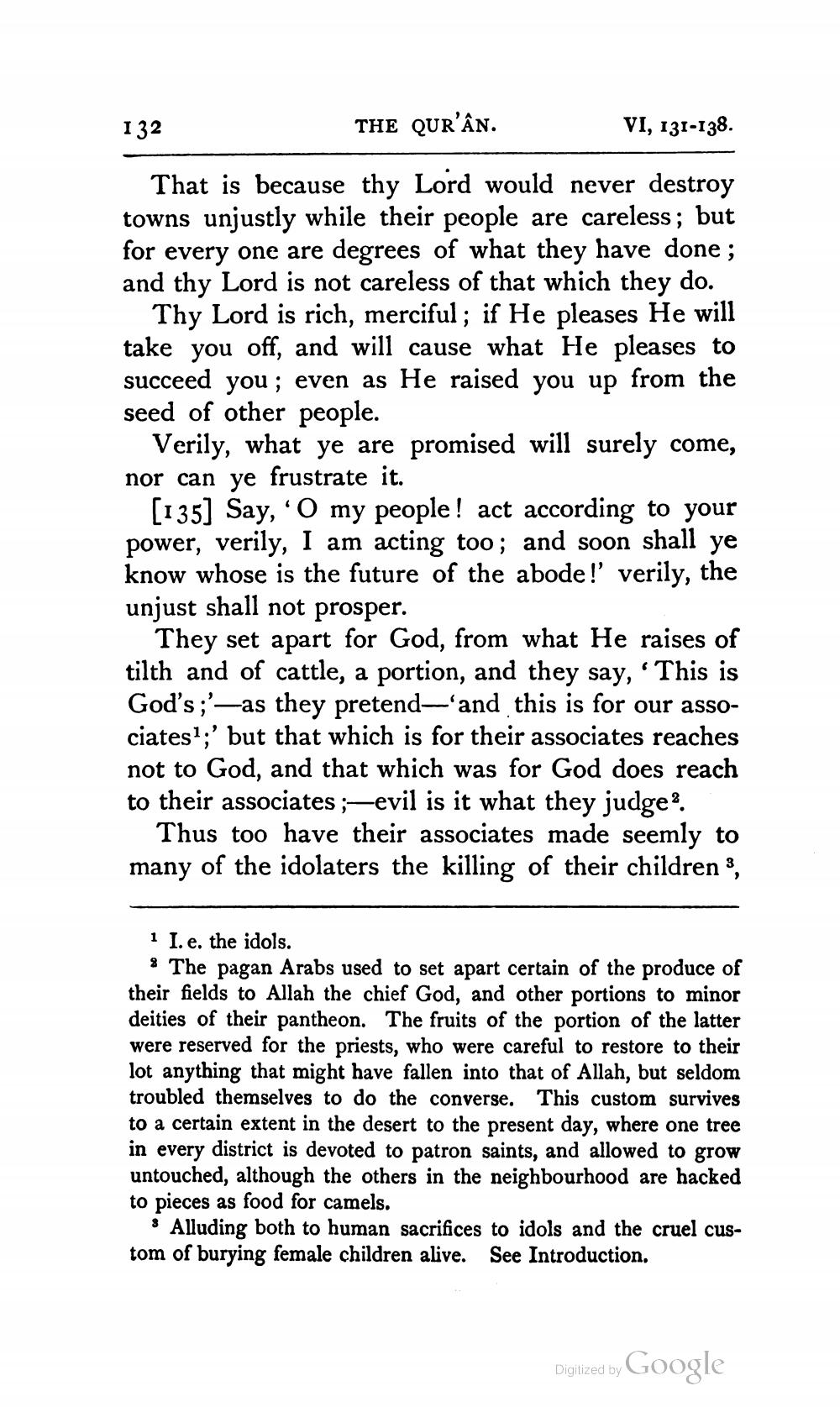________________
132
THE QUR'ÂN.
VI, 131-138.
That is because thy Lord would never destroy towns unjustly while their people are careless; but for every one are degrees of what they have done; and thy Lord is not careless of that which they do.
Thy Lord is rich, merciful; if He pleases He will take you off, and will cause what He pleases to succeed you; even as He raised you up from the seed of other people.
Verily, what ye are promised will surely come, nor can ye frustrate it.
[135] Say, 'O my people! act according to your power, verily, I am acting too; and soon shall ye know whose is the future of the abode!' verily, the unjust shall not prosper.
They set apart for God, from what He raises of tilth and of cattle, a portion, and they say, 'This is God's ;'-as they pretend-'and this is for our associates";' but that which is for their associates reaches not to God, and that which was for God does reach to their associates ;-evil is it what they judge.
Thus too have their associates made seemly to many of the idolaters the killing of their children 3,
1 I. e. the idols.
The pagan Arabs used to set apart certain of the produce of their fields to Allah the chief God, and other portions to minor deities of their pantheon. The fruits of the portion of the latter were reserved for the priests, who were careful to restore to their lot anything that might have fallen into that of Allah, but seldom troubled themselves to do the converse. This custom survives to a certain extent in the desert to the present day, where one tree in every district is devoted to patron saints, and allowed to grow untouched, although the others in the neighbourhood are hacked to pieces as food for camels.
Alluding both to human sacrifices to idols and the cruel custom of burying female children alive. See Introduction.
Digitized by
Digitized by Google




